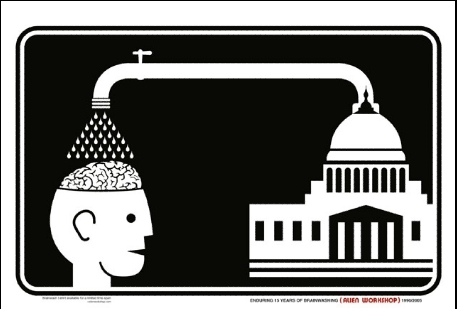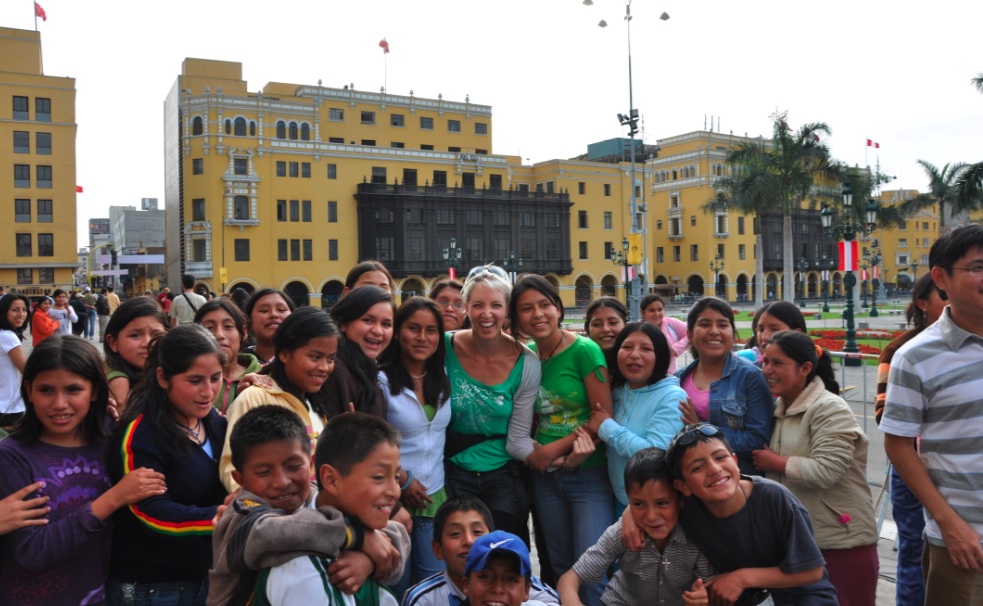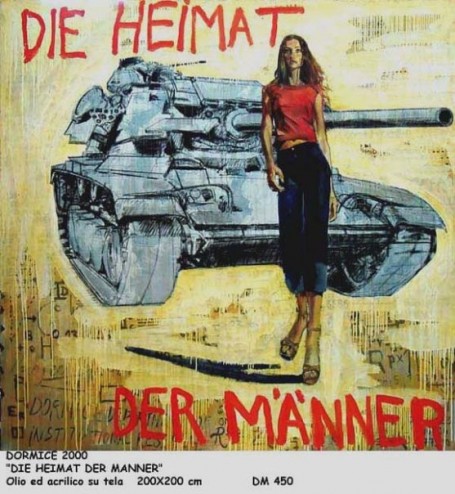 This is a story within a story – an episode among Friday night’s random route home. A conversation between a peace lover and army dudes – about war and love and perceptions, and chess and sex.
This is a story within a story – an episode among Friday night’s random route home. A conversation between a peace lover and army dudes – about war and love and perceptions, and chess and sex.
“What do you do?” A visiting American army boy, one of my friend’s friends, asked me that inescapable ubiquitous question.
“Um…” I which box shall I put myself in this time? “I’m a student.” I replied.
“What are you studying?”
“Peace and Conflict.”
“Huh?”
“Peace,” I repeated, “You know..” I made a peace sign with my fingers.
“Yeah? You do know we’re in the army don’t you?” He laughed. The conversation progressed along interesting lines, as it tends to do when Peace meets War. “The word Peace carries a lot of baggage – you have to be careful how you use it.”
“I know, I smiled – it had been something on my mind lately. “That’s why Peace and Conflict Studies isn’t more simply named Peace Studies,” I told him. “It was only when the word ‘Conflict‘ was added to the title, the University of Sydney agreed to support the emerging discipline.”
I understand the reasoning behind this, at least in part. The word Peace can concur images of a state of nothingness – like when you meditate and have inner peace: you are one with everything and so you feel completely full, but at the same time you feel completely empty. This can be nice temporarily, but it doesn’t really do much for progression and change – which is kinda essential to an evolving universe. As I’ve mentioned before, conflict is good – it’s violence that would be nice to avoid.
It was a good conversation. It helped me reclarify the difference between Iraq war and Afhanistan war. I should know which is which, but they keep mixing up in my head.
“So Iraq was Sadaam and the ‘Weapons of Mass Destruction’ – subtext: oil;
and Afghanistan was Osama bin Laden, the “War on Terror” – subtext: opium?” I clarified.
“More or less,” he laughed. “And what do you think you are going to do about it?”
“I’m not quite sure,” I answered. “Right now I’m just learning about it.”
“How does studying books about peace help the situation? You know, it is frustrating when these professors preach this and that, or peace activists call for the end of war,” he said.
“Or worse when idiots like Bob Brown want to cut our salaries in half.” One of the Aussies added.
“These professors and greenies don’t know what’s it’s like over there: what’s it like to wipe your butt with your left hand and clean it with drinking water. That’s what life is like for these people and that’s what we have to endure when we are there.”
Gulp. It is true. Here I am so insulated – I have no idea what life is really like in these places. How can I, a student of Peace and Conflict Studies, know anything about what’s really going on when I haven’t been there?
“I do see a need for defense.” I agreed. “I see a need for securing resources and protecting ourselves from potential harm, even if I don’t at all agree with the methods. I totally appreciate you guys going out there, risking your lives to secure our way of life.” I told him. I know defense has it’s place.”But I think in addition to defense, you need peace research – people who analyse the context of the conflicts – people who search for long-term solutions.”
War these days seems inseparable from capitalism, values, lifestyle choices, ideologies and religions. There seems to be an incredibly vast web of issues that are interconnected and paradoxical. Unless these issues are analysed from various perspectives imagining long-term solutions, how can issues humanity faces ever be addressed?
Trillions of dollars go into defense – into protecting ourselves from the outside world. That money could be spent on education and new systems and infrastructures – addressing the causes of the fear rather than building more of it.
That’s why I study peace and conflict: I’m trying to deepen my understanding of the roots of these global issues – trying to identify why we need to change, and how this change is possible. Will this analysis help on a practical level? I don’t know. But it’s better than nothing – right?
I find it hard, especially when I know I’m already pre-programmed for the defect system we are in. My customer dollar, investment dollars, and citizen vote speaks louder than any form of activism or campaign, yet I follow my almost innate nature to purchase goods that are the best value (cheapest price & highest quality), invest my money where will give me the highest return, and vote for the party who is going to do the most for my personal situations.
My monetary and civilian votes (albeit inadvertently) desire cheap oil, and that’s what I get – thanks to our country (and America’s) defense force.
Our systemic structures are pretty much designed for us to forget that all these things are intrinsically connected: war, poverty, lifestyle, money.
And because we forget the connections, it seems that NO ONE IS RESPONSIBLE – all responsibility is obliterated in the structural lines: management have one purpose: to generate profit for shareholders. Shareholders invest for one reason: to make as much money in their investment as possible (for doing nothing). Customers want the cheapest goods and workers want the highest wages. Someone has to pay – and that, today, is the “3rd world” whose resources (human and nature) we continue to plunder from afar. Not much has changed since the Spanish Conquest and Colonialism – only we don’t have to look at it. These benefits are free, and the consequences on people and the planet are not given real thought.
It’s all in the systems, the roles, and our definitions – so we have to look at this, and figure out where and how it can change to make things better.
From where I stand there are few options:
a) play ignorant – block out the things I don’t want to hear and go on living my relatively meaningless short life. This temporal denial helps no one – the rich get more fat and depressed while the poor waste away and pop out more babies. In fifty years I’ll be dead or dumb so what will I care if the earth and people on it suffer?
b) focus on defense without peace – support the defense of our lifestyles, invest more and more into it, knowing full well that stronger civilizations have fallen in the past: eventually the west will collapse and another hegemonic power will rise. Or we all/most of us die off with a big nuclear bomb or other wars in the process.
c) focus on peace without defense – be “do-gooders” and help the poor, leaving ourselves open for other countries who have not-so-good morals to take everything from us. Helping the developing countries develop without changing the structure of the system is largely destined for self destruction. Without defense other countries probably take over and continue in our destructive footsteps.
d) search out deeper longer-term win-win solutions – imagine what world without war and hunger would look like, work together to identify the systemic lines that stand in the way, and then re-define the system based on a defined set of shared humanistic and ecological values.
Defense is driven by fear, while Peace is driven by love. The goal, I think, is to learn to face our fears, embrace and breed creativity out of conflict, and see how love of self, of others and of our planet can better our lives for today, and for generations to follow.
Oops – I’m off track… continuing Friday night’s conversation:
“You boys are playing the wrong game,” I told the small group of American and Australian army men who had joined in the debate. Words I have previously blogged about on the subject were dying to come out of my mouth.
“Oh yeah?” one smirked.
“You guys are chess pieces on a global chess board,” I shrugged. They nodded, I guess that part’s pretty obvious. “And while chess can be fun, I think sex is better.”
Gulp. “Huh?”
“Sex.” I repeated.
“Sex?”
“Yes sex”
“That’s what I thought you said.”
“Chess is black and white. In chess you have one winner and one loser, or a stalemate,” I began.
“But sex is a different game altogether. In sex, both parties win. And the more one party wins, the more the other wins.”
I smiled as I said these words, watching their jaws drop.
I guess while it’s one thing to write about this kind of stuff, it’s kinda another thing to say it, and to army guys in a nightclub may sound a touch risky. But these guys were cool, I couldn’t resist having a fun with words. While they weren’t complaining about the topic of conversation (as you can imagine), I’m not so sure they “got” the depth of my analogy.
As I see it (and you may have read this in past posts), Love is the gift that keeps on giving. The more you give, the more everyone gets.
BUT Fear if let rule is a horrible abyss, like a debt that constantly compounds. The more you fight to protect, the more you stand to lose.
I think the army/security theorists deserve respect from peace researchers/workers/activists, just as I think peace researchers/workers/activists deserve respect in return. I think that both share the same underlying goals – they just envisage achieving them via different means.
Both have powerful roles – collaborative roles – both are necessary until a new system can be put in place.
Then, maybe (hopefully) all peace and war workers will be out of a job – with lots of time for new endeavors (and lots of sex.) 😀
Artwork credit:
Talented artist and good friend Sawan Yawnghwe – his Dormice series: http://www.agallery.co.uk/gallery.php?cat=6350

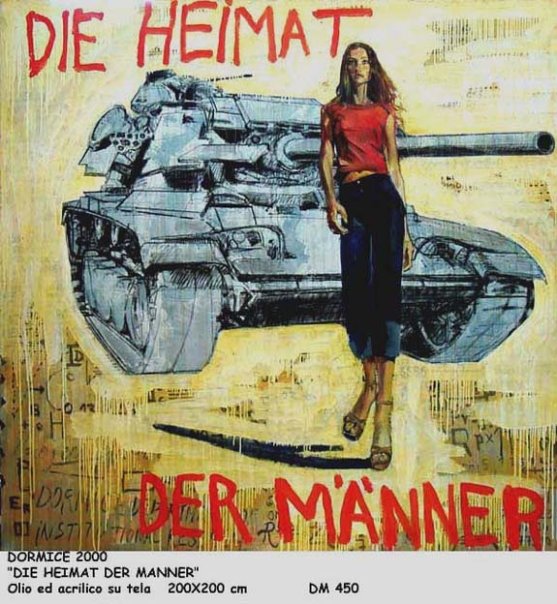
 This is a story within a story – an episode among Friday night’s random route home. A conversation between a peace lover and army dudes – about war and love and perceptions, and chess and sex.
This is a story within a story – an episode among Friday night’s random route home. A conversation between a peace lover and army dudes – about war and love and perceptions, and chess and sex.


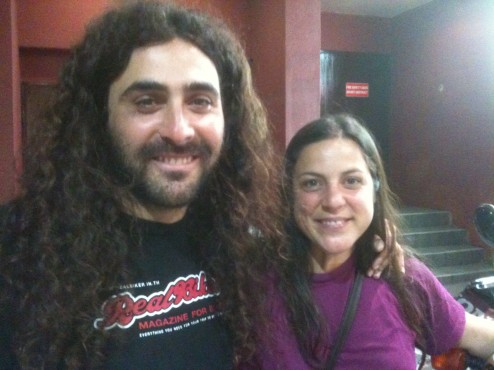
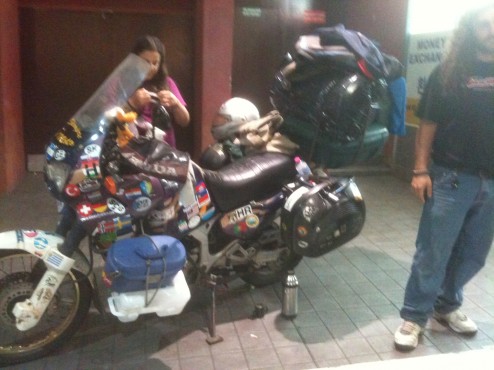
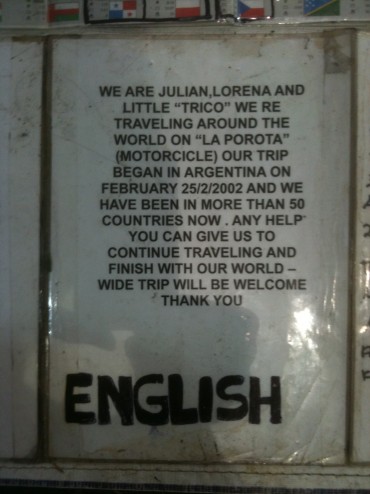




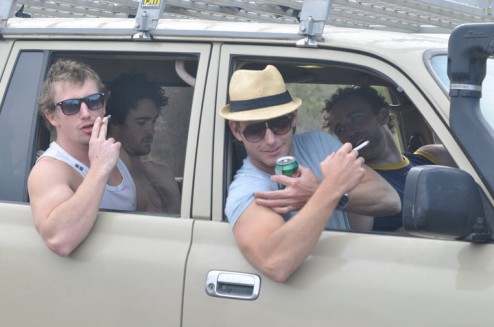 Can nice guys they finish first? Or is it always the bad boys who win the game? While you probably thinking I’m referring to my choice in men, I ask this question in a more general evolutionary context – inspired by a BBC documentary by Richard Dawkins. While one might expect Dawkins to say nice guys finish last, given his book The Selfish Gene, this documentary tells another story…
Can nice guys they finish first? Or is it always the bad boys who win the game? While you probably thinking I’m referring to my choice in men, I ask this question in a more general evolutionary context – inspired by a BBC documentary by Richard Dawkins. While one might expect Dawkins to say nice guys finish last, given his book The Selfish Gene, this documentary tells another story…